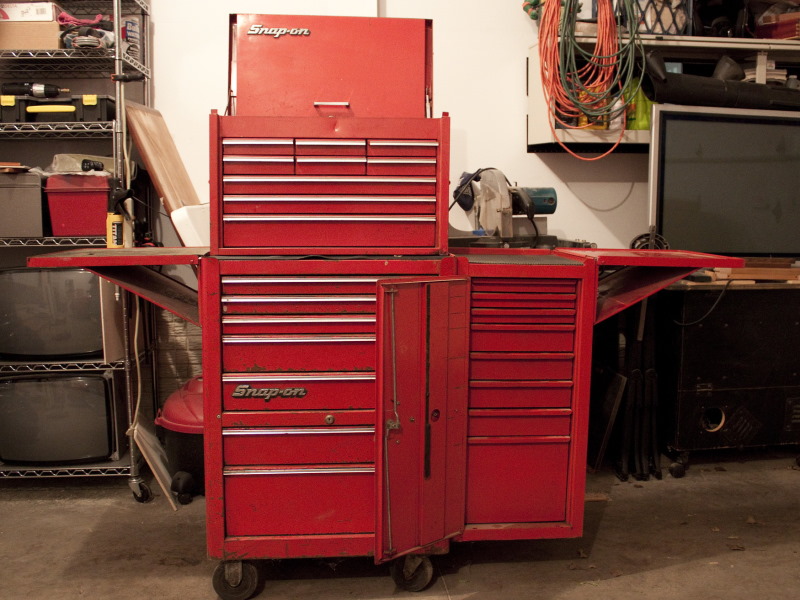Short Supply Chains Help Snap-On Weather Pandemic
Snap-On CEO thinks more companies selling in U.S. markets will bring manufacturing here.

Snap-on tool storage. Photo by flickr user trebomb. (CC BY 2.0)
With supply chain issues and strong demand causing inflation to soar, one Wisconsin CEO talks about the importance of making supply chains shorter.
Nick Pinchuk is the president and CEO of Snap-on Incorporated — a Kenosha-based designer and manufacturer of high-end tools and equipment.
“We’ve put our factories in the best places. We’re here in Kenosha, and the people in Kenosha have been the wellspring of our energy and capability for more than 90 years,” Pinchuk said Thursday.
According to Pinchuk, Snap-On makes its products in the countries it markets them — creating shorter supply chains. He said it’s helped with constraints on shipping and getting the materials needed to keep up with product demand.
Snap-on’s website shows the company has 13 manufacturing facilities in the United States, including one in Milwaukee, and 11 international locations.
In the wake of the COVID-19 pandemic, Pinchuk said manufacturers are going to move “toward America.”
But a tight labor market means many manufacturers are struggling to find workers to keep up with demand.
As of April 2022, there were 996,000 open manufacturing jobs in the U.S., according to the U.S. Bureau of Labor Statistics. That’s 131,000 more open manufacturing jobs than at the same time last year.
Pinchuk attributes the labor shortage to two things: people lacking the skills for high-tech manufacturing jobs, and that jobs in manufacturing have a “PR problem.”
“Americans no longer believe in manufacturing,” he said. “(Parents) believe if you go into manufacturing, you settle for the consolation prize in our society.”
For Pinchuk, one way to remedy that is to focus on retention.
“When you walk in the door, chances are you’re going to be here 30 years,” he said. “And generally, it’s been working OK for us. And I think part of it is we just didn’t stop (when COVID-19 hit.)”
Snap-on CEO looks at the benefits of a shorter supply chain was originally published by Wisconsin Public Radio.
If you think stories like this are important, become a member of Urban Milwaukee and help support real, independent journalism. Plus you get some cool added benefits.



















Because who would know more about labor problems in the US other than the CEOs.